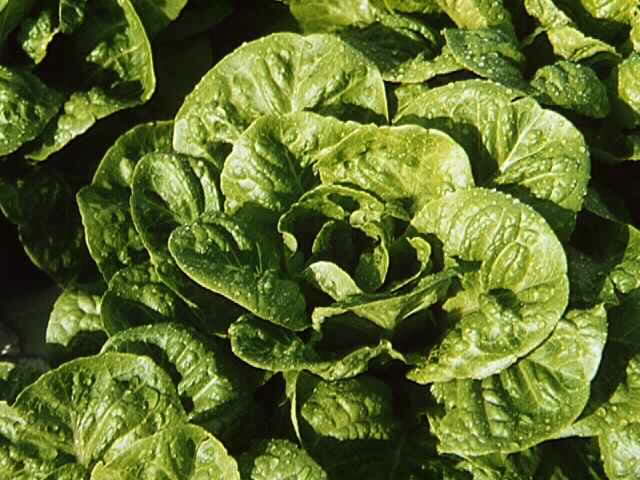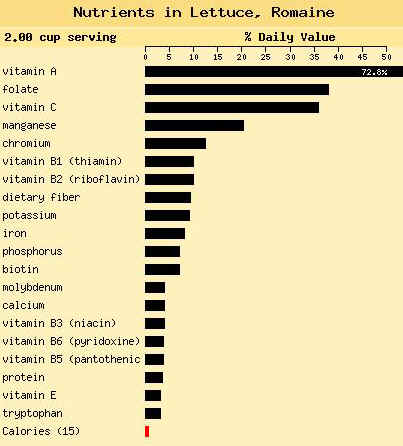|
Fresh
Field "AAA" Romaine
|
The
popularity of romaine lettuce
is brought about by the success of Caesar
salad.
Said to have originated on the Aegean island of Cos, romaine lettuce has an elongated head, with deep green outer leaves and a fresh, slightly bitter center. Its higher nutrient content makes it an excellent substitute for iceberg lettuce.
Choosing Romaine
A
good-quality Romaine lettuce should feature crisp looking, fairly firm heads and thick leaves.
The leaves should be medium to dark-green in color blending to nearly white ribs or
veins and golden yellow - white inner core or what we call, Hearts
of Romaine. Even-shaped heads with broad but firm leaves are best.
|

|
|
|
|
|
Fresh
Field "AAA" Romaine: Straight from the Field
|
After
3 years of extensive research and development, Lettuce
Entertain You Farm Corporation is happy to introduce the Fresh
Field "AAA" Romaine.
The
Fresh
Field "AAA" Romaine is
different from the romaine lettuce you can normally see in
most supermarkets. For one, its not the tobacco shape
romaine.
At
an average of 8" in
length, the Fresh
Field "AAA" Romaine
possess
a good and sizable
romaine
heart.
This is the most valuable part of romaine because of its
superior texture, flavor and color.
Also
with Fresh
Field "AAA" Romaine, we
trim down as much bad romaine leaves as possible without
bothering the romaine heart before we ship it out.
Straight
from the farm, the Fresh
Field "AAA" Romaine is
now available in selected supermarkets.
However, if
you are looking for washed romaine lettuce for your Caesar
salad, we have the Fresh
Field Classic Caesar.

|

The
golden yellow - white part of the romaine is called the heart
of romaine. It is the part of romaine that makes
romaine what it is today ... very popular (above). Only
the best romaine leaves and sweet golden yellow-white heart of
romaine for a perfect Caesar salad. (below).

|
|
|
Health
Notes
|
Romaine's vitamin C and beta-carotene content make it a heart-healthy green. Vitamin C and beta-carotene work together to prevent the oxidation of cholesterol. When cholesterol becomes oxidized, it becomes sticky and starts to build up in the artery walls forming plaques. If these plaques become too large, they can block off blood flow or break, causing a clot that triggers a heart attack or stroke. The fiber in Romaine lettuce adds another plus in its column of heart-healthy effects. In the colon, fiber binds to bile salts and removes them from the body. This forces the body to make more bile, which is helpful because it must break down cholesterol to do so. This is just one way in which fiber is able to lower high cholesterol levels.
Equally beneficial to heart health is Romaine's folic acid content. This B vitamin is needed by the body to convert a damaging chemical called homocysteine into other, benign substances. If not converted, homocysteine can directly damage blood vessels, thus greatly increasing the risk of heart attack and stroke. In addition, romaine lettuce is a very good source of potassium, which has been shown in numerous studies to be useful in lowering high blood pressure, another risk factor for heart disease. With its folic acid, vitamin C, beta-carotene, potassium, and fiber content, romaine lettuce can significantly contribute to a heart-healthy diet. |
 |
|
|
